You may like them or not, however, similar swimming pool rules exist all over the world.
These rules exist to ensure the safety of the pool visitors as well as the hygiene of the pool facilities.
For these reasons, we have compiled below the most common rules for public and private swimming pools.
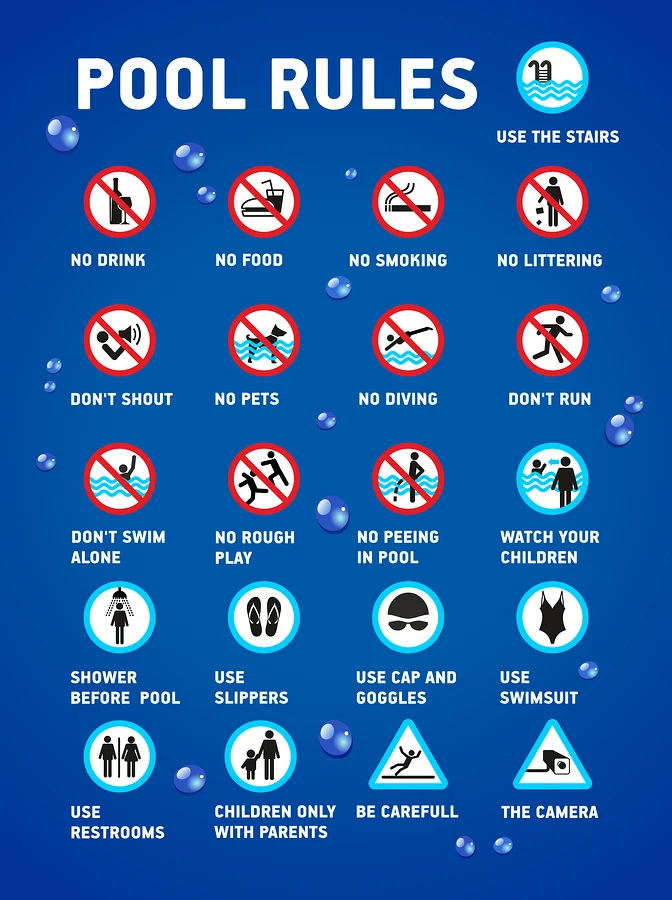
Public Swimming Pool Rules
1) Always follow the specific rules laid down by your local pool.
2) Always follow the instructions of the lifeguard. He or she is the most qualified person to make decisions in this environment.
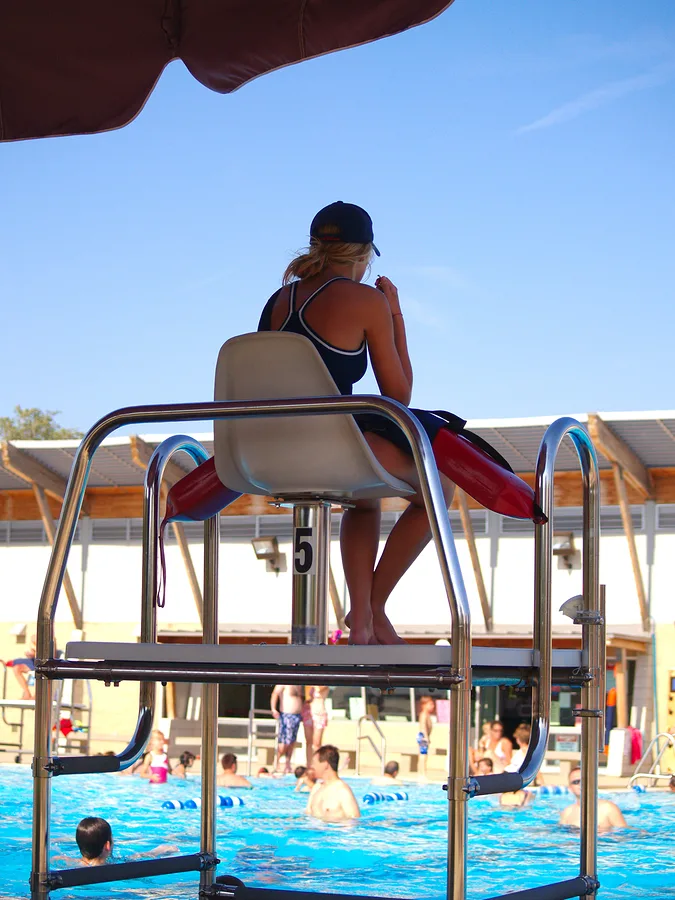
3) Parents should always keep an eye on their children.
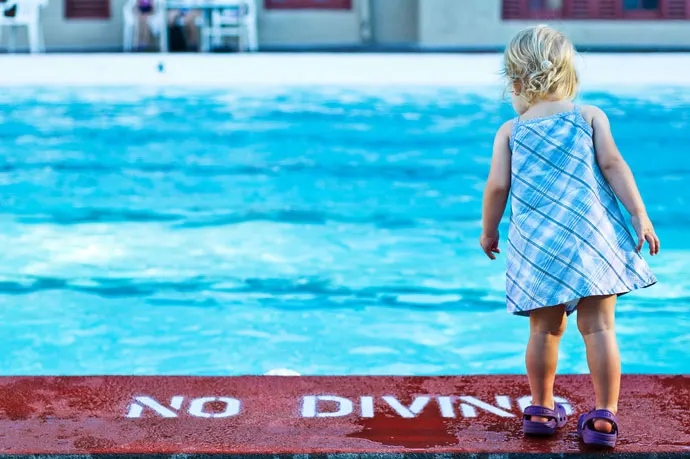
4) Do not run alongside the swimming pool, but walk instead. Children often like to run and are at higher risk of breaking a limb if they slip on the wet floor.
5) No rough play, either.
6) Do not dive without proper supervision by an experienced swimmer or instructor.
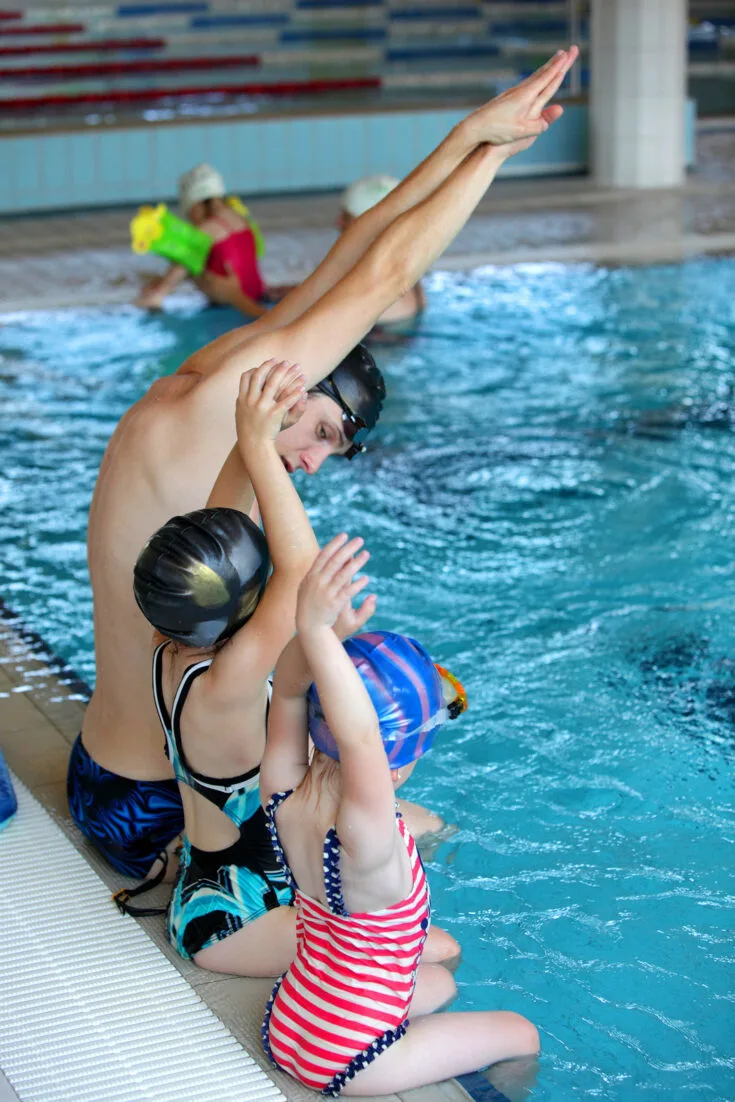
Diving should always be done at the deep end of the pool, and never at the shallow end or anywhere in between.
It is not unusual for children to suffer head injuries or broken necks because they tend to overestimate the depth of the water, then crash headfirst into the ground.
7) Avoid going to the pool if you have the flu, open wounds, or warts. You do not want to infect other pool visitors.
8) Wear a swim cap.
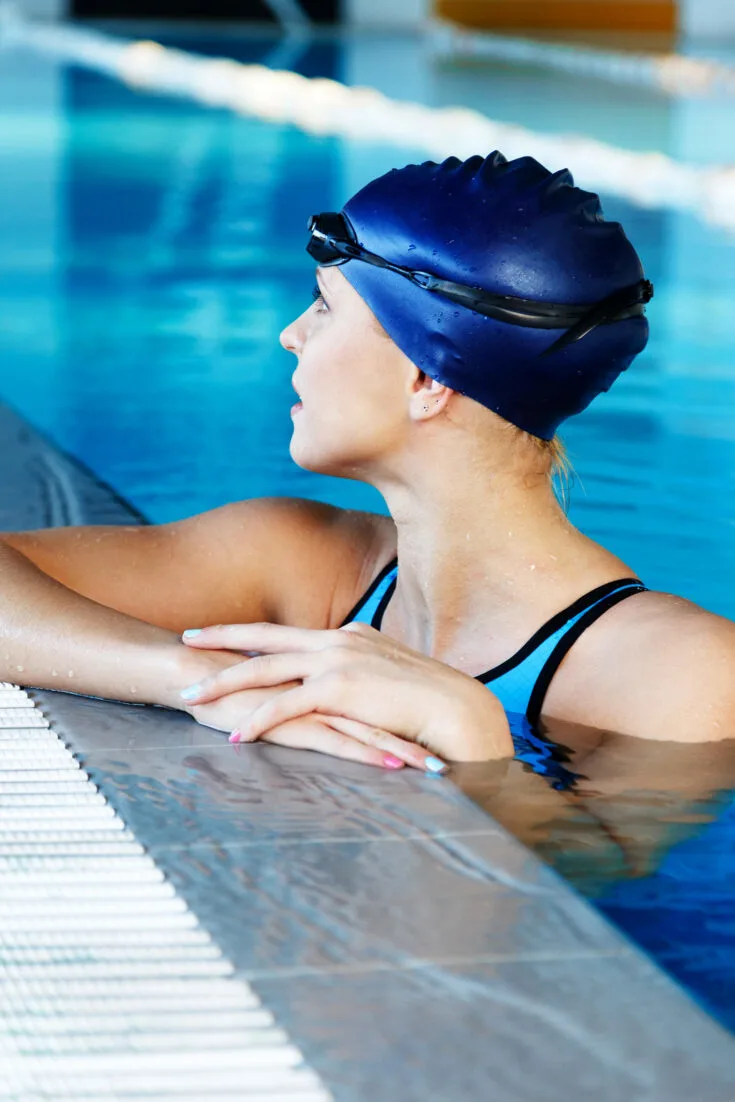
First, swim caps can protect your hair from chlorine and other swimming pool chemicals.
Second, swim caps reduce the occurrence of hair clumps at the bottom of the pool and also keeps the pool filters clean.
9) Always use a clean swimsuit. Do not go into the pool with swimwear that you have worn all day.
10) Do not enter the pool if you are dirty. Always shower first. The pool is not your bathtub.
11) The pool is not a toilet. Please use the bathroom.
12) If you go to the pool with a toddler, make sure he or she is wearing waterproof swimming diapers.
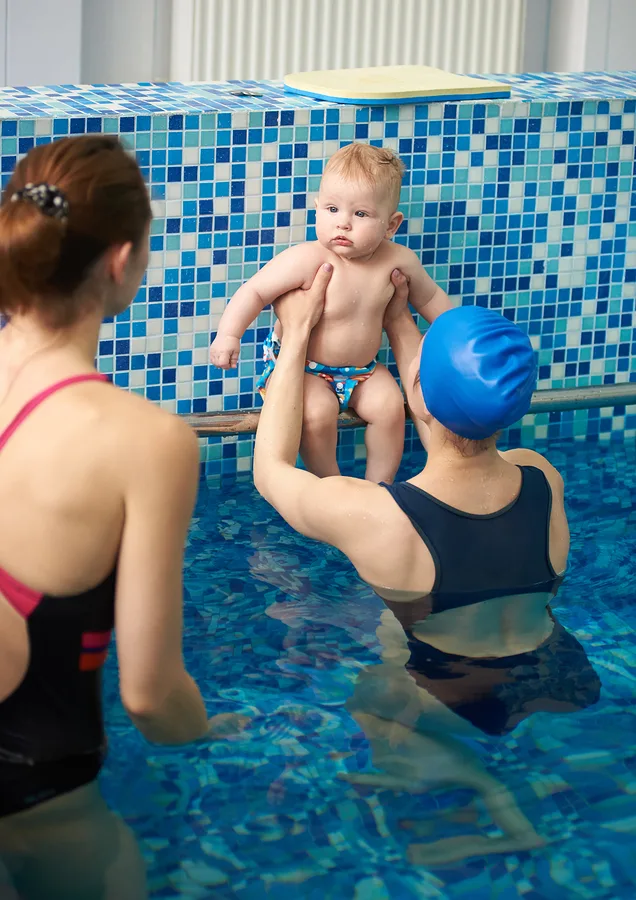
13) Parents should ensure that their children (and of course themselves) do not cross lanes or play in lanes where people swim.
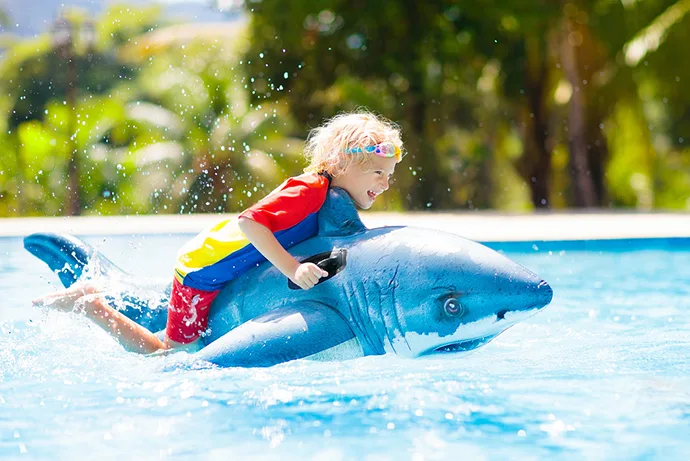
It can be frustrating for swimmers to have to swim around standing, walking, or playing people.
14) Parents should make sure that their children do not sit on the pool lane dividers, as this can be quite disturbing for lap swimmers.
15) Avoid swimming underwater while holding your breath, especially after hyperventilating. This can lead to shallow water blackout and drowning.
16) Do not “borrow” swimming equipment that is lying around the side of the pool and looks like it is no longer being used.
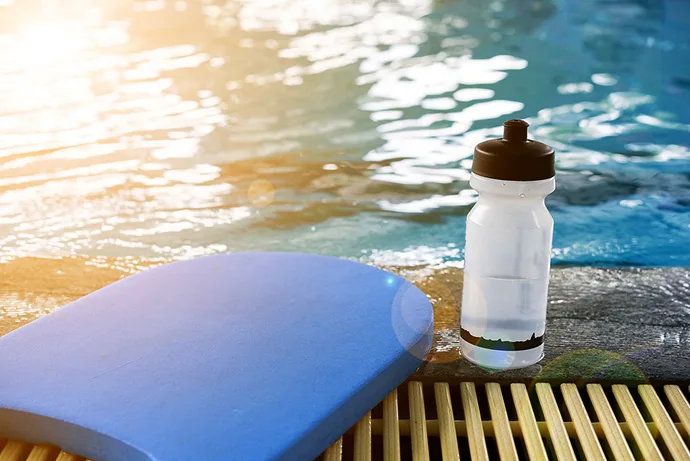
Someone brought it there and will most likely need it soon.
Private Swimming Pool Rules
If you own a private swimming pool, you also have to be careful because it only takes a few moments for a child or non-swimmer to drown.
Therefore, the following security measures should also be observed at a private swimming pool:
1) As a pool owner, you should be trained in CPR (Cardiopulmonary Resuscitation).
2) Never let children swim without supervision, even for a moment.
3) As described above, do not allow children to dive from the wall or diving board without proper supervision. Do not allow them to dive from the shallow end, either.
Diving from other structures is also dangerous and should be prohibited.
4) When a private swimming pool is not in use, it should be properly covered and fenced.
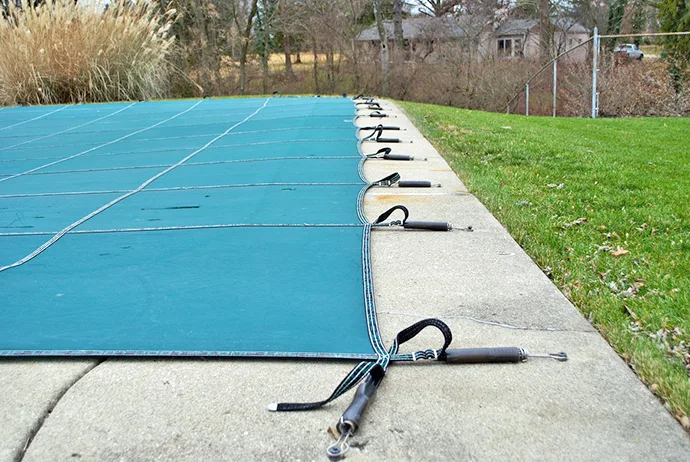
An alarm should also be installed to detect intrusion into the fenced area or a disturbance of the water.
Additional Tips
Your swimming pool builder/manufacturer has to deal with pool safety regularly and should, therefore, also be able to give you good advice on how to keep your pool safe.

Janet Ingman
Tuesday 8th of November 2022
Are pools allowed to block all steps in/out of pool, due to lessons, but have the public in the middle of lanes having to drag themselves in/out the pool? It’s fine for some but others get left to struggle. To me it looks unsafe.
robert
Thursday 13th of October 2022
HOA has posted Dawn till Dusk the pool is well lit and never been enforced till now. They now put a bike lock around the gate which I feel is a safety issue. But that’s a different story
Mohammed
Saturday 10th of September 2022
What does manual timing system Automatic timing system Semi- automatic timing system and other timing system in swimming
Samantha
Monday 25th of April 2022
I live in an apartment complex that has a pool as part of the amenity and was told by the property manager that the pool is only open during business hours and closed on the weekends. Are they able to do that?
Janice
Monday 4th of April 2022
If an apartment has had its pool closed during Covid 19 period (mid. March 2020) and as of April 1, 2022 decided to open the pool. My question is, how clean is that water? Shouldn’t the water been emptied and the floors of the walls of the pool been cleaned before opening the pool?? Wouldn’t bacteria grow or something like that after 1 1/2 years without the water being cleaned; tested, or whatever they do on Mondays to close the pool (that’s on the memo).
Christophe
Monday 4th of April 2022
Hi Janice,
This is a good question for which I don't have an answer. I do know that in my public pool, the pool is completely emptied once a year and the walls and floor are cleaned. The water quality is also tested every week.
Hopefully someone more familiar with the operation of a pool can give us a better answer.